QuestionHi, I have more questions about mother rats and their babies. Today, while trying to get Suzie, (the mom) out of her birthing den, she tried to bite me. Well, actually, I was holding a rag, and she bit it hard and tried to drag it in. I tried to lure her out w/ food, but it didn't work. How can I get her out to check on the babies without getting bitten? Also, do you know of any websites that give information on how to take care of baby rats and moms?
Thank you,
Natalie
AnswerI think I already kind of answered you from last time....as far as care for the rats go.
Are they in a cage with the bar spacing close together?
You can read up on my website at Sandyscrittercity.com for info on rat care.
As for the babies and their special care,as long as mom is doing her job, there is nothing for you to do. They will eat the same food mom eats when they are ready, usually around 3 weeks of age. You should be feeding them the right foods, just like mom eats, by going over my website and reading about proper nutrition. Feeding pet store seed mixes are no good.
As for the cage, the bars should be spaced close together so they cannot escape when they start moving around. Their eyes will open around 2 weeks of age.
Here is some info below on raising baby rats along with their mom. My friend is a great breeder in Canada and here is some info she shares:
One Week Old
When your babies are about a week old, their hair is long enough to see what colors they will be. Soon their colors really start to emerge. If their skin is dark, they most likely will have darker hair, and if their skin is pink it will be white or light-colored. They will still stay in the nest, as they are blind and deaf and rely on their mother for all that they need. They will paddle around as they learn how to walk, and they may find their way out of the nest. If the mother doesn't notice them, gently replace them back into the nest, or they may get cold and hungry. Continue to handle the babies daily at this point, making sure not to take them away from their mother for too long. Even at this young age they will learn your smell and touch, and will become friendlier, tamer pets because of this early handling.
Two Weeks Old
At around day 13 to 16, your babies' eyes and ears will open. Be very careful at this stage, because they are seeing and hearing everything for the first time and they don't know what to make of it. After a few days, they get used to it and begin exploring their cage. Give them a few safe toys for them to play with, such as a rope, a tunnel, or a safe wheel. Make sure you put the water bottle low enough to that they can reach it, because their mother will start weaning them soon and they have to learn how to drink water on their own. Handling the babies at this stage is even more crucial to their development, as they are most susceptible to socialization training at 2 to 6 weeks.
Often at this stage the babies will be somewhat nippy. This is similar to when a human baby is teething, or a puppy's need to chew. They are simply testing their environment and their ever-growing teeth. You will find them chewing on pretty much anything they can get their paws on, and occasionally they will nip your fingers. If they do this, make a loud 'squeak!' sound and pull away. This should let them know that you are not a chew toy!
Three to Six Weeks Old
After their eyes open, they begin to look and act just like adult rats, though a lot more playful. Keep up the constant handling, which becomes easier at this point because the rats can be away from their mother for longer and longer periods of time. You can set up a play cage for them filled with toys, or take some of the babies out in a safe escape-proof area where they can run around and play with you. Their mother begins to wean them around three weeks, and they are completely weaned by five weeks of age. Around five weeks as well, the babies become sexually mature, meaning you have to separate the males from the females including the mother, as they will impregnate their sisters and even their mother if given the chance. Males from the same litter rarely fight, so it's okay for them to share a cage. You can also put the male babies into a cage with other males, though make sure you introduce them carefully, as some males do not take kindly to intrusions of other males, even if the newcomer is a baby. And, of course, a baby can be hurt badly by a large male rat, intentionally or not. The females can be put in their own cage or they can live with their mother for the time being. If you are selling the babies, they are now ready to go into new homes between five and six weeks of age.

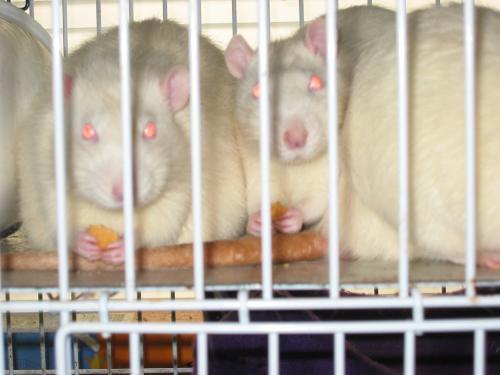 pet rat has lump on neck
QuestionQUESTION: Hello, I have a pet rat who seems to
pet rat has lump on neck
QuestionQUESTION: Hello, I have a pet rat who seems to
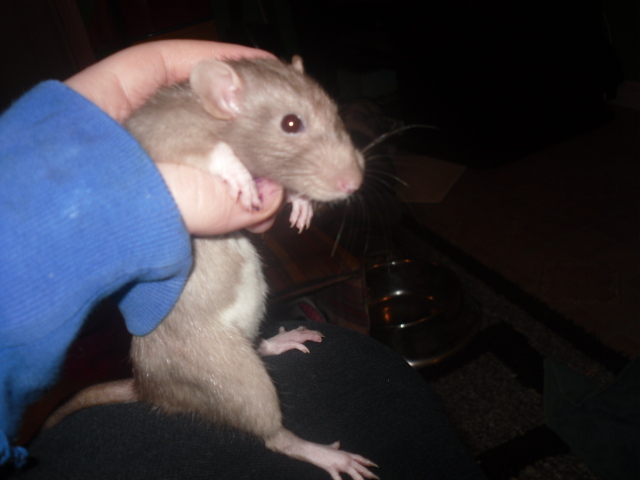 Do you think my rat is pregnant/ When will she have them?
Question
Belly picture.
I bought a rat from a breeder,
Do you think my rat is pregnant/ When will she have them?
Question
Belly picture.
I bought a rat from a breeder,
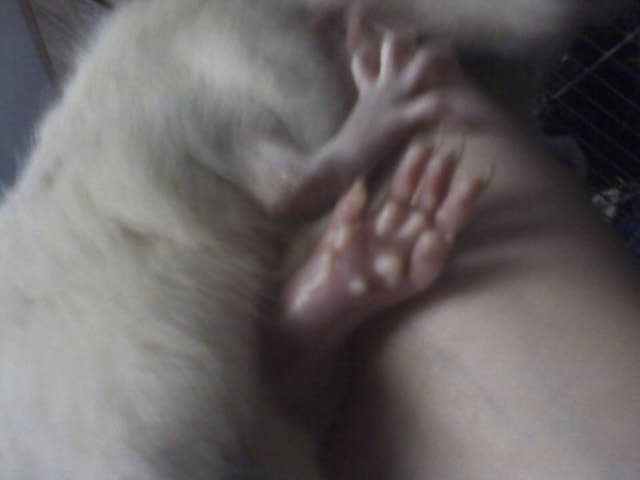 Follow up for Hiccup
QuestionHiccups Foot
QUESTION: I woke up this mo
Follow up for Hiccup
QuestionHiccups Foot
QUESTION: I woke up this mo
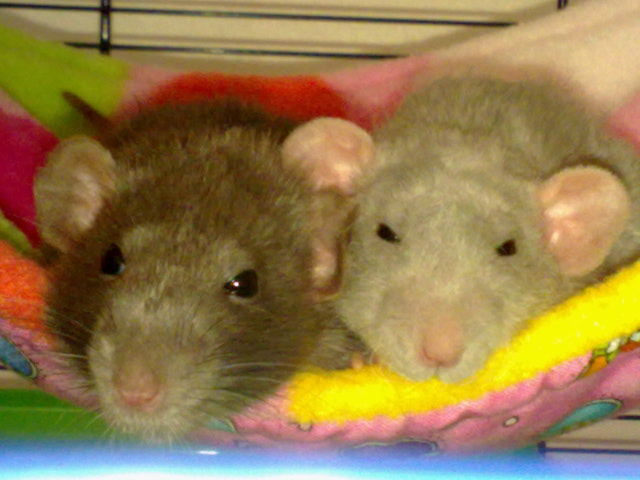 Rat fur in poor condition after hormonal implant
QuestionChiara and Luna
QUESTION: Hi Natasha I h
Rat fur in poor condition after hormonal implant
QuestionChiara and Luna
QUESTION: Hi Natasha I h
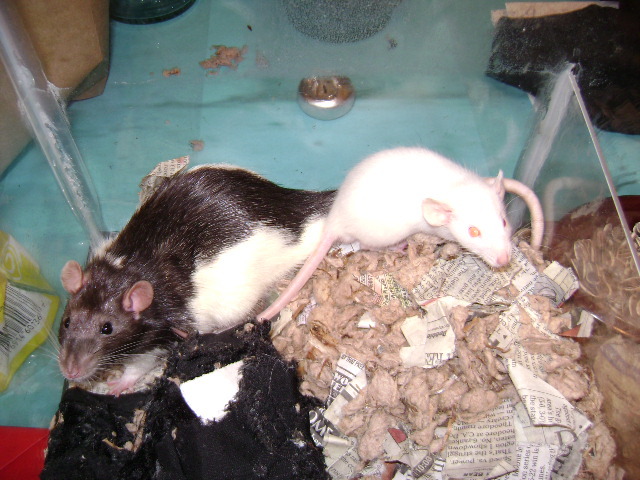 Rat Bully
Question
My boys.
I just have a question about introduc
Rat Bully
Question
My boys.
I just have a question about introduc